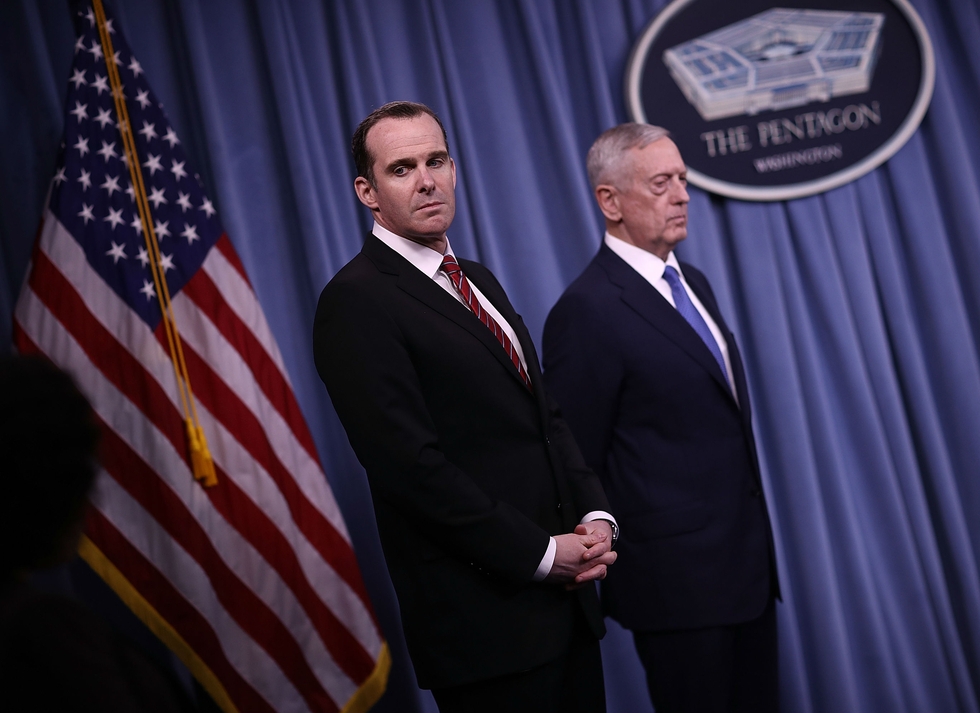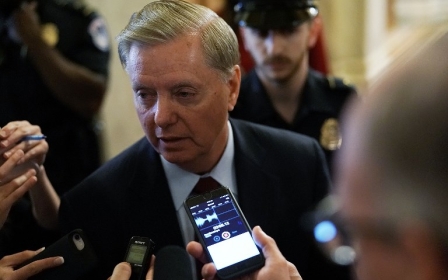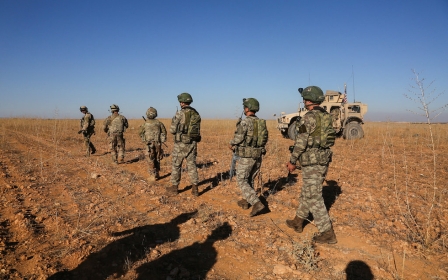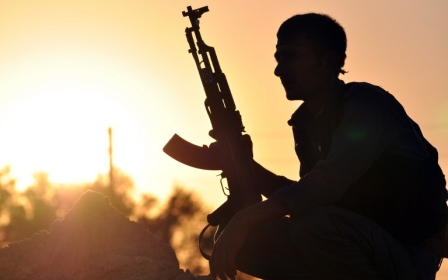US envoy for fight against Islamic State quits over Trump's Syria pullout

The United States' envoy to the international coalition fighting the Islamic State group (IS), Brett McGurk, resigned from his position on Friday, effective 31 December, a State Department official said on Saturday.
McGurk had planned to resign in February, but he was prompted to move that date forward due to his distaste at US President Donald Trump's decision to withdraw all troops from Syria.
Trump announced the defeat of IS in Syria on Twitter on Wednesday morning, while officials told news agencies that a withdrawal was imminent.
McGurk's resignation follows that of Defence Secretary James Mattis, who quit over the same concerns.
The US envoy had publicly assured that Washington was committed to continuing the fight against IS in Syria just days before Trump's announcement.
"We want to stay on the ground and make sure that stability can be maintained in these areas," McGurk said.
On Saturday, US Secretary of State Mike Pompeo assured Iraqi Prime Minister Adel Abdul Mahdi that the US is still committed to fighting IS in Iraq and other areas despite its planned withdrawal from Syria, Abdul Mahdi's office said.
"Prime Minister Adel Abdul Mahdi received a phone call from US Secretary of State Mike Pompeo who explained the details of the upcoming withdrawal from Syria and affirmed the United States is still committed to fight Islamic State and terrorism in Iraq and other areas," Abdul Mahdi's office said in a statement.
Mistake from the start
Meanwhile, Iran welcomed the impending US pullout from Syria on Saturday, calling the US presence "a mistake, illogical and a source of tension".
The statement made by Iranian foreign ministry spokesman Bahram Qasemi was the first since Trump announced on Wednesday that he was pulling US troops out of Syria.
"From the start, the entry and presence of American forces in the region has been a mistake, illogical and a source of tension, and a main cause of instability," Qasemi was quoted as saying by state media.
From the start, the entry and presence of American forces in the region has been a mistake, illogical and a source of tension, and a main cause of instability
- Bahram Qasemi, Iranian foreign ministry spokesperson
When Turkish President Recep Tayyip Erdogan spoke to Trump on the telephone a week ago Friday, his agenda had not changed from when they met two weeks earlier at the Group of 20 summit in Argentina, the Washington Post said.
He repeated his inability to understand why the United States was still arming and supporting Syrian Kurdish fighters to conduct a ground war against IS.
“You know what? It’s yours,” Trump said of Syria. “I’m leaving,” the Post reported.
Trump then announced the pullout, saying that the war against IS had been won, and there was no need for a US presence in the region.
He also said that Iran, the Syrian government and Russia now needed to confront the group.
Through money, military advisers and militias, Iran has helped prop up the government of Bashar al-Assad since the revolution against him erupted in 2011.
Tehran contends that the only legitimate foreign forces in Syria are those invited into the country by Assad's government.
No change in al-Tanf
In related developments, a rebel group in eastern Syria said US forces had not pulled out of the al-Tanf base they share near the Iraqi border, and did not expect them to any time soon.
The leader of rebel group Maghawir al-Thawra, Colonel Muhanad al Talaa, said on Saturday the rebels were informed of Trump's decision but nothing had changed on the ground.
"American troops plan to withdraw completely form Syria, but I don't have details and things are as they are up until this moment," Talaa told the Reuters news agency from the base.
Al-Tanf was set up when IS controlled the area along the Syria-Iraq border, but the fighters have since been rolled back.
It is strategically placed near the Damascus-Baghdad highway, which is suspected to be a chief route through which Iran supplies the Syrian government and the Lebanese group Hezbollah with arms.
Washington has declared a 55km "deconfliction zone" around the al-Tanf base, which has become a safe haven for at least 50,000 civilians, mostly women and children, who live in the Rukban camp within it.
Washington's decision means an even bleaker future for these camp dwellers for whom the camp was a safe haven as many fear retribution if they return to their towns in Syrian government-controlled areas in eastern Syria, residents say.
US forces have occasionally hit Iranian-backed militias operating near the base, as well as Syrian government troops.
Middle East Eye propose une couverture et une analyse indépendantes et incomparables du Moyen-Orient, de l’Afrique du Nord et d’autres régions du monde. Pour en savoir plus sur la reprise de ce contenu et les frais qui s’appliquent, veuillez remplir ce formulaire [en anglais]. Pour en savoir plus sur MEE, cliquez ici [en anglais].




